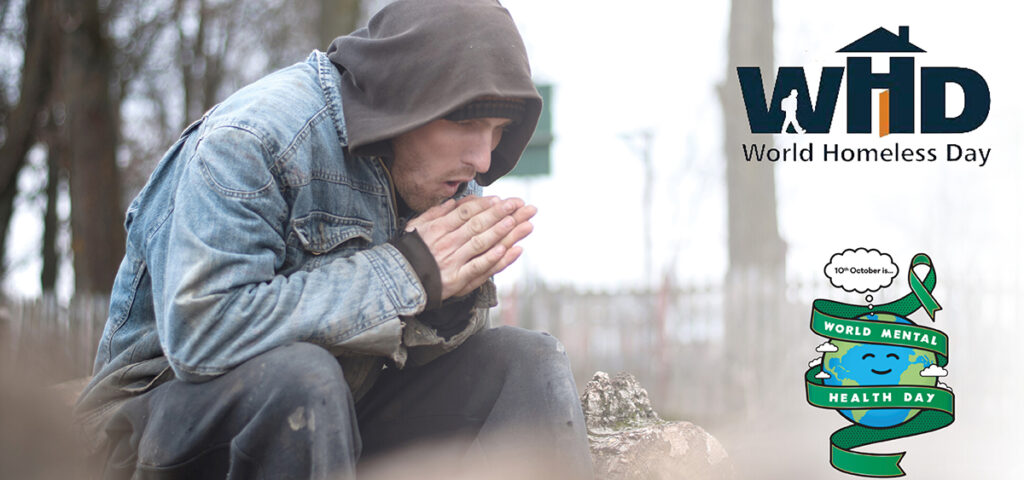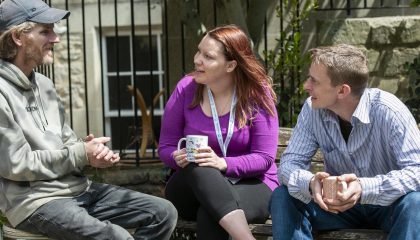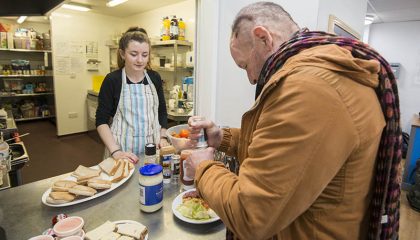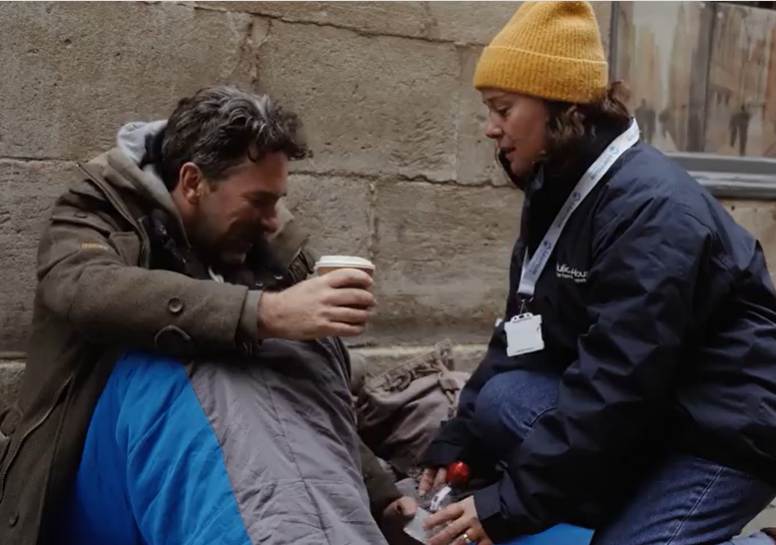
This week sees World Homeless AND World Mental Health Day, two topics which make so many people vulnerable.
Like many marginalised groups the relationship between homelessness and mental health can be interchangeable – many rough sleepers cite mental health struggles as a reason for becoming homeless and, for many, poor mental health can be the main reason why it is so difficult to move away from the streets.
Our Bath-based Assertive Homeless Outreach team is a collaboration between Julian House, DHI (Developing Health and Independence) and AWP (Avon and Wiltshire Mental Health Partnership). We spoke to Paddy, a community Psychiatric Nurse from AWP, about the link between mental health and homelessness and the support he gives in his outreach role and why emotional support and stability is vital.
“Much of the work I do is around assessment and crisis management as well as providing links between different services, including those between statutory and third sector, which are particularly strengthened by our collaborative approach to supporting people sleeping rough. The prevalence of mental health issues is higher within the homeless population in comparison to the general population, including major depression, schizophrenia and bipolar disorder. Also, many of the rough sleepers we see have experienced severe childhood trauma, which has not been addressed and continues to require intensive support in adulthood.
Our outreach sessions enable us to identify those who need help with their mental health, and, after a thorough and holistic assessment, we can start to put into place a mental health plan, often involving many other agencies and following a trauma informed pathway.
Our outreach team is exactly that – a team! We all bring different skills to the team and one of the areas I am able to help is to support the team to help build trusting relationships with people sleeping rough who are experiencing a mental health crisis. Being part of AWP also means that I have access to PCLS (Primary Care Liaison Service) where I can call on advice from a wealth of Psychiatrists and Clinical Psychologists when difficult situations arise.
One of the barriers to seeking help, by people sleeping rough, is the combination of a severe and enduring mental health issue and a drug or alcohol problem. They can sometimes be refused help by both mental health and substance misuse services until they have addressed either issue. It really helps that DHI have a ‘Dual Diagnosis’ worker, funded by B&NES Council, who can specifically focus on supporting people with this issue.
Homelessness in itself can also be a barrier in accessing the services they need, and the lack of appropriate supported accommodation is a big challenge. The fact that I am part of the outreach team means that I can carry out assessments on the street and start the accommodation process early. For those who are more vulnerable, emotional support and stability is even more vital.
We recently supported someone who had a very traumatic childhood and was obviously in need of therapy. However, because he was sleeping rough and wasn’t stabilised, he was not able to access the support he needed. When the pandemic hit Julian House moved him into one of the emergency accommodation units and we put a trauma informed mental health plan in place so that he was able to become more stabilised.
Now he is getting the therapy he so desperately needed and finding ways to recover from homelessness, for good”.
You can find out more about our outreach services here.
And if you would like to support the work we do, please consider making a donation here.






